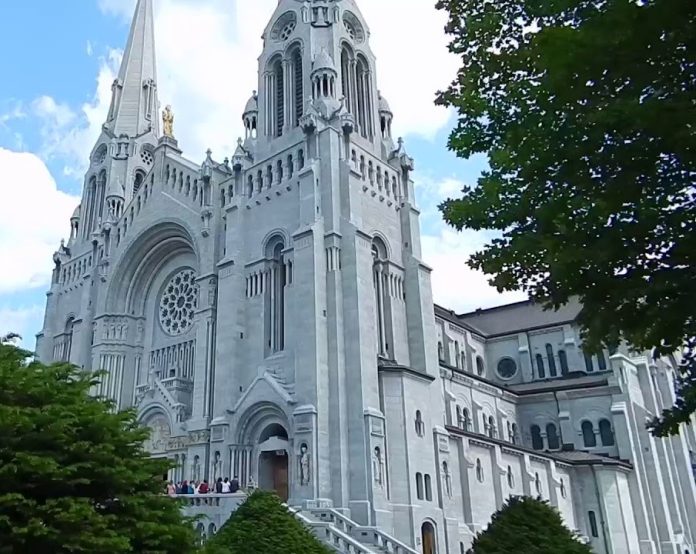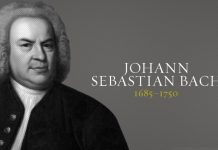“If the Church were to be removed from the world, in a short time the world would end.” St. John Henry Newman
 Twenty years ago, I attended a UK press screening of The Barbarian Invasions, by Quebec director, Denys Arcand, who had brought his film to London.
Twenty years ago, I attended a UK press screening of The Barbarian Invasions, by Quebec director, Denys Arcand, who had brought his film to London.
The film was a snapshot of Quebec, circa 2003, which almost instantly ran counter to British suppositions about Canada in general. The film was also prophetic because it accurately captured the ongoing cultural revolution that had long been undermining and discrediting Catholicism – the foundational stone of Quebec and her history – that had reached a zenith during the long premiership of Maurice Duplessis.
Yet Arcand’s depiction was also so unexpected that as the curtain fell over the film credits, the director found himself attacked by incredulous viewers questioning the veracity of his portrait of a country dramatically at odds with the sunny health care propaganda Canada had been promoting for decades.
The film – a continuance of Arcand’s 1986 film, The Decline of the American Empire – revisits characters from the original film and their children. As it opens, Arcand’s original characters are now confronting death but still holding fast to their socialist beliefs. At the centre is Rémy, a womanizing professor, dying of cancer in a squalid Montreal hospital while his estranged son, Sebastian, works to secure better medical treatment than his father is receiving.
Socialized Health Care
It’s an ugly picture, establishing the grim state of socialized health care in Canada with footage Arcand obtained in a Montreal hospital where his cameras rolled down filthy hallways crowded with actual gurneys on which patients languished unattended. From there, he panned entire floors of empty wards, telegraphing the deep dysfunction into which this Quebec government-run hospital had fallen. Nor can Rémy get adequate medication to relieve his pain, leaving Sebastian, an international financier whose capitalist career Remy disapproves of, to find practical solutions to his father’s misery.
It’s only by bribing a hospital administrator and the head of the hospital’s vicious union that Sébastian can get Rémy out of his overcrowded ward and into a private room on an empty floor. Sébastian also secures more accurate medical tests for his father, while inducing the junkie daughter of one of his friends to obtain heroin to ease Rémy’s pain. Yet all this intervention isn’t enough, forcing Sébastian to take his father to an upscale healthcare facility in Vermont for treatment unavailable in Quebec.
The film is a harrowing picture of contemporary life in Quebec, showing where the self-obsessed secular beliefs of Rémy and his friends have taken them and la belle provence. All of which is epitomized in a stunning scene – unforgettable really – where the microcosm of Rémy’s last days morphs into the macrocosm of contemporary Quebec when an auctioneer visits an old priest in Montreal. The priest takes her to the basement of his church where he has a room full of plastic-covered statues and chalices he wants to sell. Examining the lot, the woman tells him they would be of more value to his parishioners than on the world market. “In other words, they are worthless,” replies the priest.
Capturing the truth like nothing else could!
From there, the film – in all its unloveliness, leavened with a cynical lightheartedness – courses to its final scene, after which viewers openly scoffed at Arcand’s depiction of a crashing public health system at odds with the ideologies of secularism and socialism that had brought it to that point.
Now fast forward two decades …
Highest Euthanasia Rate in the World
This just in: QUEBEC HAS THE WORLD’S HIGHEST EUTHANASIA RATE. And BILL 11 COULD INCREASE IT EVEN MORE.
This was the headline of a recent article written by Alex Schadenberg, of the Euthanasia Prevention Coalition. In it, he states that in 2022 more than 5,000 people in Quebec died by MAiD (Medical Assistance in Dying). And now that situation has been made worse with last month’s passing of Bill 11 in the Quebec legislature, amending the Act respecting end-of-life care and other legislative provisions.
How so? Schadenberg notes that many are unaware that Canada has two euthanasia laws – a Quebec law that came into effect in December 2015 and a federal law that came into effect in June 2016. The new Bill 11 expands the Quebec euthanasia law by obliging palliative care homes to offer MAiD; by offering MAiD in cases of serious physical disability and by offering MAiD by advance request.
The Canadian Press also reported that Bill 11 “allows Quebecers to receive a doctor-assisted death in places other than hospitals, such as funeral homes and long-term care facilities.”
And earlier this year, a French-language CBC radio program by Davide Gentile and Daniel Boiley reported that the 5,000 Quebecers euthanized in 2022 alone represented more than seven percent of deaths in Quebec. This prompted the Quebec government’s Commission on End-of-Life Care to launch a consultation into why Quebec now has the highest euthanasia rate in the world.
All of which means Quebec’s euthanasia rate will only go up.
What’s more, defining euthanasia eligibility to specifically permit the killing of people with serious disabilities, who are not otherwise dying, confirms the eugenic nature of Quebec’s euthanasia program.
Eugenics: A Reality Check
To all this, Pierre Luc Turcotte paints an even darker picture in The Montreal Gazette: “In Germany, during the Second World War, ‘competent professionals’ – doctors and nurses – participated in a euthanasia program that led to the deaths of 200,000 disabled persons. This eugenic policy was part of the Nazi’s social cleansing efforts. But it was also seen and socially accepted as ‘medical care’ based on the reasoning these lives were ‘not worth living.’ While a parallel with Bill 11 may seem far-fetched … we must take every precaution to avoid repeating mistakes of the past.”
Schadenberg responded:
“I know that people will say that it is unacceptable to compare Canada and Quebec’s current euthanasia programs to the Nazi euthanasia program that began in 1939. But if they are different, then Turcotte is correct to urge that we avoid repeating the mistakes of the past. Quebec has the highest euthanasia rate in the world, and it has now expanded its euthanasia law. It seems to me that Quebec and much of the rest of Canada have become dedicated to death. I recently projected that there will be at least 13,500 Canadian euthanasia deaths in 2022, representing a 35 percent increase.”
How ironic that Canada has now become a country labelled as a ‘genocidal’ nation state by its own leadership – the same leadership assaulting Canada’s history, its institutions and its founding figures, such as John A. Macdonald, who stand indicted in their graves on vague ideology-based charges against which they are unable to defend themselves as their once sterling reputations are now destroyed.
Who will answer to this?
There too is that word ‘unacceptable’, so routinely employed in Trudeau’s Canada where ‘unacceptable’ is used judgmentally and according to politically correct norms, yet devoid of traditional moral standards. No ‘right’. No ‘wrong’. No moral truth. No recognition of evil. Only secular denunciations of things or events according to government standards. In fact, it’s a word so morally relativist as to epitomize Benedict XVI’s “The Dictatorship of Relativism,” which the late pope declared in 2005 “does not recognize anything as definitive and whose ultimate standard consists solely of one’s own ego and desires.”
Quebec’s saints
What would the Venerable Jeanne Mance and St. Marguerite Bourgeoys say? Or St. Brother André Bessette? Sainted voices from Canada’s past when life may have been harsher but the love of God and of life itself forged it for centuries. That is, until its gradual erosion over recent decades via the steady din of anti-Christian ideologies designed to turn cultures on themselves, culminating in what St. John Paul II described so accurately and so devastatingly as “the Culture of Death.”
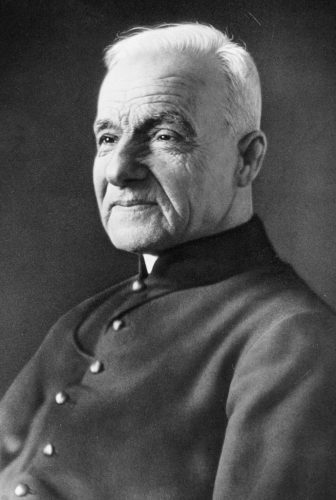 Does Brother André recognize his beloved Quebec today? Its magnificent churches, shrines, universities and art? Does he recognize the Quebec that before the Quiet Revolution of the 1960s relied on the high Catholic birthrate for its very survival and relied on priests, nuns and lay Catholics to operate its hospitals and schools?
Does Brother André recognize his beloved Quebec today? Its magnificent churches, shrines, universities and art? Does he recognize the Quebec that before the Quiet Revolution of the 1960s relied on the high Catholic birthrate for its very survival and relied on priests, nuns and lay Catholics to operate its hospitals and schools?
What would Jeanne Mance and Marguerite Bourgeoys say about the health care and education systems of Rémy’s Quebec? Would Mance, who overcame great hardship and illness to found the first hospital in Montreal, view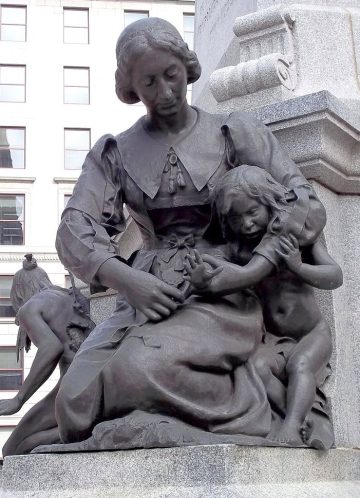 contemporary Quebec hospitals favorably? Would she have approved of Quebec physicians’ public debate over the ‘need’ for euthanasia? What would Marie de l’Incarnation and her
contemporary Quebec hospitals favorably? Would she have approved of Quebec physicians’ public debate over the ‘need’ for euthanasia? What would Marie de l’Incarnation and her![]() three Ursuline Sisters, who came to Quebec in 1639 to found the Hotel Dieu Hospital, say about the state of the Montreal hospital filmed by Arcand? Or the secular state of Quebec today? Would Marguerite Bourgeoys, who established the Congregation of Notre-Dame to teach colonist and native children, be impressed? What would she say to the contemporary accusations of ‘genocide’ circulated so freely today as Canada breaks records for euthanasia internationally?
three Ursuline Sisters, who came to Quebec in 1639 to found the Hotel Dieu Hospital, say about the state of the Montreal hospital filmed by Arcand? Or the secular state of Quebec today? Would Marguerite Bourgeoys, who established the Congregation of Notre-Dame to teach colonist and native children, be impressed? What would she say to the contemporary accusations of ‘genocide’ circulated so freely today as Canada breaks records for euthanasia internationally?
Reviling Quebec History
In postmodern Quebec, it has long been fashionable to revise and even revile this foundational period of Canadian history as “unenlightened,” just as Arcand’s characters reflect.
“It is customary to denigrate all this now, as clericalized, superstitious hokum, the antiquated mores of a primitive society,” noted Conrad Black in an archival essay on historic Quebec.
Yet this is precisely the kind of “superstitious hokum” that produced such saints as the Canadian Martyrs and St. Brother André, regarded as Canada’s first modern saint, and who, as porter at Notre Dame College in Cote-des-Neiges in Montreal, numbered among his charges, Maurice Duplessis, the only five-term premier in Quebec history. And when Brother André died in January 1937, aged 91, it was Duplessis who led one million mourners – about one quarter of the whole French population of Quebec – and who personally paid for the saint’s marble sarcophagus.
“It need hardly be emphasized how far into memory the ethos of that time has receded in Quebec, and certainly, modernization was required,” writes Black, arguing that Duplessis’ Quebec was not the Great Darkness that the mythology of the Quiet Revolution claims: “It built 3,000 schools, most of Quebec’s universities and hospitals, roads and autoroutes, brought electricity to rural areas, and vastly improved social services, precisely because the government could pay very modest wages and salaries to un-unionized, un-avaricious, clerical personnel, fiercely dedicated like Brother André, avoiding debt and stimulating prosperity and economic activity with low taxes.”
Some darkness!
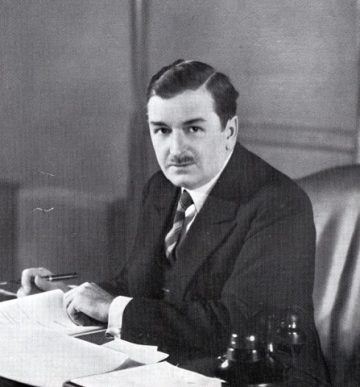 The Duplessis era, in fact, was the culmination of the Church in Quebec that preserved the language and almost all social services in French Quebec for 350 years – from the time of Champlain to the Quiet Revolution – all the while rendering great service to the unity of Canada.
The Duplessis era, in fact, was the culmination of the Church in Quebec that preserved the language and almost all social services in French Quebec for 350 years – from the time of Champlain to the Quiet Revolution – all the while rendering great service to the unity of Canada.
Yet despite the fact that the Church in Quebec worked well in its time, its momentum was eclipsed by two events – the death of Duplessis in September 1959 and the march of progressive Western political science in the 1960s. After Duplessis’ death, Quebec society was caught in the Quiet Revolution, a swift socio-cultural change away from his conservative policies toward a highly secular, socially liberal welfare state, the consequences of which became the focus of Arcand’s Oscar-winning film.
Leftist Lessons
The film ends with Sebastian taking his father to his lakeside cottage of the first film to discuss philosophy, politics, and past sexual and intellectual exploits. It is also here that the still faithless Rémy can live out the rest of his days until the mawkish moment arrives when his friends gather to witness what one assumes will be his romantically staged suicide. This too flows directly from the philosophies that energized such intellectuals as Rémy and his friends who’d never seen a tyrant or a bad idea they didn’t fall in love with, as evidenced in this exchange:
Rémy: We’ve been everything: separatists, supporters of independantists, sovereignists, sovereignity-associanists…
Pierre: At first, we were existentialists.
Dominique: We read Sartre and Camus.
Claude: Then Fanon, we became anti-colonialists.
Rémy: We read Marcuse and became Marxists.
Pierre: Marxist-Leninists.
Alessandro: Trotskyists.
Diane: Maoists.
Rémy: After Solzhenitsyn we changed, we became structuralists.
Pierre: Situationists.
But never Christians, God forbid!
Thus Rémy, the liberal academic who spent his life indulging in sensual and intellectual adventures, admits to falling for all the fads of academe: socialism, communism, deconstructionism. And he acknowledges the less than utopian outcomes of those “isms” – the six million dead in Ukraine, the 20 million dead in Mao’s “Great Leap Forward,” the two million dead in Cambodia’s Killing Fields, and so on.
Predictably, Rémy is a character only socialism could produce – a spectacularly ignorant professor who freely indulges his every urge, who goes easy on Stalin and Mao while furiously castigating Pope Pius XII who he claims allowed the Holocaust.
Rejecting God
Intentionally or not, Arcand showcases the pitiful yet arrogantly stupid consequences of rejecting God. One of those consequences is epic dysfunctionality, a societal illness where all institutions are no longer fit for purpose and men and women in all professions become thwarted cogs in a sclerotic machine where nothing works and real love – the sacrificial and spiritual kind – has vanished.
“You’ve invented all this for the film,” one angry audience member told Arcand at the special screening. “I simply do not believe that your health system is as bad as you depicted.”
“Oh, mais il est!” Arcand insisted, hinting that his own experience with the health system had been the genesis for the film. He was not inventing any of it, he told the woman, a Brit. Nevertheless, she remained distressed by what she’d just seen, preferring to believe that Arcand was either a blinkered bigot or had overly dramatized his story for commercial reasons. She wasn’t alone in her outrage. In the Q &A that followed the screening, several others challenged Arcand’s film which, to them, strongly contradicted the propaganda they’d been fed about socialized medicine in Canada.
Arcand Explains
“When it first came in, everything worked brilliantly,” Arcand said of Quebec’s health care system. “But after about ten years, it began to fall apart.”
He explained why. “The reason it can’t be fixed is that it has no ‘self-correcting mechanisms’ within it, unlike a private system which has the forces of a competitive market to keep it functioning efficiently. Otherwise, it wouldn’t survive.”
Which is true as far as it goes. But Brother André, in his simplicity and humility, would identify the underlying cause: The rejection of God, namely Jesus Christ, as the fount of all truth, all love and all order. The Way, the Truth and the Life, as Holy Scripture declares.
“The history of mankind is a history of horrors,” says Rémy in one of his pontificating moods. Which, without Christ, is inarguably true.
Yet in his arrogance, man falls for the siren song of socialism almost every time it’s sung. Its true seductiveness lies in its perverse appeal to man’s higher instincts while it deceitfully usurps the natural role of charity in the affairs of men and supplants it with the impersonal power of government which, without Christ, always and everywhere produces tyranny and slavery.
Yes, it’s a history of horrors. Except for Christ who came into this world to save us from ourselves and for Him!
St. Joseph, Patron Saint of Canada
As is well known, Brother André had a life-long devotion to St. Joseph, the patron saint of Canada, and the father of Jesus on earth. And it was St. Joseph who inspired Brother André in 1904 to build a small chapel in his honour. It was here that Brother André began receiving visitors, smiling through long hours of listening and applying Saint Joseph’s oil. Some were healed, some not. But the pile of crutches, canes and braces grew. So did the chapel which, by 1931, had gleaming walls but no more money.
“Put a statue of Saint Joseph in the middle,” he advised. “If he wants a roof over his head, he’ll get it.” And so he did.
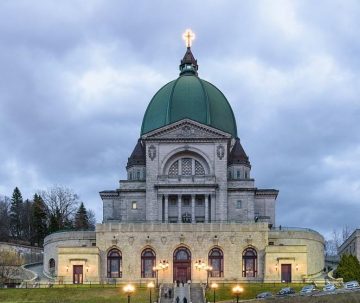
Yet nearly a century later, the errors and frailties of Rémy and his friends have succeeded in setting Quebec and the rest of Canada resolutely on the road to destruction, confirming in the most abject terms that the refusal to choose Christ inevitably and inexorably leads to death.
Literally.
And all this is happening in a profoundly blessed country where physicians trained to heal patients have, under the Justin Trudeau government, been authorized to do the exact opposite. Rather than being asked to ease suffering by providing patients with treatment and care, physicians now have the ‘right’ to put a patient to death. No longer a crime, this ‘right’ is called “health care.” Legalized murder which, in escalating numbers, becomes genocide.
Just like legalizing abortion which was sold on the premise that it would be stringently regulated. And rare. Rather than what it is today – rampant and almost mandatory – as Canadian tax dollars are routinely dispatched to fund abortion overseas through such NGOs as the UN, which is dedicated to depopulating the world.
So where does this leave Quebec and Canada?
In a country now going broke on fulfilling its utopian dreams by deliberately thwarting its God-given abundance and by living up to the demands of ‘woke’ dogma, how many Canadians sense the sands shifting beneath their feet in a nation now so adverse to pain that it might one day regard any Canadian suffering from persistent depression worthy of government-assisted death? All the while bragging about Canadian values. Based on what? The lofty notions of a famous prime minister who, in 1969, paved the way for legalizing abortion – Canada’s first holocaust – which has since weakened Canada, possibly beyond repair?
Here’s my question: why does the refusal to believe in God, and to love and adore Him above all else, make human beings, who He created in His likeness and image, so stupid?

